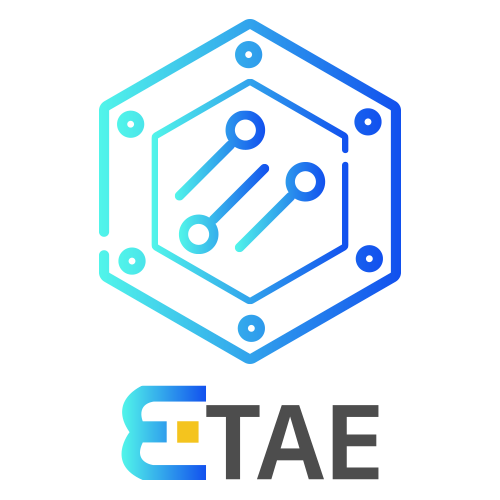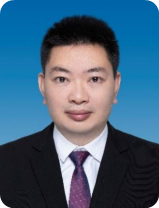
Speakers
SPEAKERS |
Prof. Qiang Yang Zhejiang University, China | Profile: Qiang Yang (M'03-SM'18) received Ph.D. degree in Electronic Engineering and Computer Science from Queen Mary, University of London, London, U.K., in 2007 and worked in the Department of Electrical and Electronic Engineering at Imperial College London, U.K., from 2007 to 2010. He visited the University of British Columbia and the University of Victoria Canada as a visiting scholar in 2015 and 2016. He is currently a full Professor at the College of Electrical Engineering, Zhejiang University, China, and has published more than 240 technical papers, filed moare than 60 national and international patents, co-authored 2 books, and edited 2 books and several book chapters. His research interests over the years include smart energy systems, large-scale complex network modeling, control and optimization, learning based optimization and control. He is a Fellow of the British Computer Society (BCS), a Senior Member of IEEE and the Senior Member of China Computer Federation (CCF). Speech Title: Artificial Intelligence driven smart energy systems: Technical challenges and Case studies Abstract: Peer-to-peer energy trading has become one of the most promising ways to coordinate networked microgrids (NMGs) for sustainable energy-based economic societies. This study aims to find optimal sizes of the networked microgrids system according to peer-to-peer P2P and peer to grid P2G energy trading markets based on multi-objective artificial intelligent optimizing methods. Three different microgrids operating together to meet different residential loads are considered, each microgrid consists of solar panels (PV), wind turbines (WT), and batteries. The annual cost of energy (ACOE) and the loss of power supply probability (LPSP) are considered as a criterion to formulate a multi-objective function. Grey Wolf optimizer (GWR) and genetic algorithm (GA) techniques are used to obtain the optimal size of networked microgrids components. In the end, the optimum energy exchange is analyzed and compared for two energy trading schemes, including peer-to-grid and peer-to-peer. |
Prof. Xiaofang Yuan Hunan University, China | Profile: Xiaofang Yuan, PhD, Professor in Hunan University, doctoral supervisor. He is mainly engaged in electric vehicles, intelligent transportation, automation & control and other aspects of research work. He has presided over more than 10 projects, including National Key R&D Program of China, project of National Natural Science Foundation of China, Science and Technology Plan of Hunan Province, etc. He has more than 50 papers have been published in IEEE Transactions and other international authoritative journals in the field of electric vehicles, intelligent transportation, including 40 SCI papers. Speech Title: Collaborative Operation Optimization of Processing Equipment and AGVs for Green Discrete Manufacturing Abstract: With the energy crisis and environmental problems becoming serious, green manufacturing has attracted growing attention from academic and industrial communities. The discrete manufacturing process often involves a variety of production resources including processing equipment, transportation equipment, etc., and is characterized by strong coupling, nonlinearity, and multi-objectives. Collaborative optimization of production resources is one of the most critical means to globally improve production indicators. Based on the analysis of the needs and opportunities of collaborative optimization in the context of green discrete manufacturing, this report takes the research on the optimization of the collaborative operation of processing equipment and AGV as an example to introduce the relevant optimization model construction and solution methods. |
Assoc. Prof. Noor Izzri Abdul Wahab Universiti Putra Malaysia, Malaysia | Profile: Dr. Noor Izzri Abdul Wahabhas published more than 100 publications. He has more than 5 PhD students and more than 10 MSc students graduated under his supervision. He has accumulated more than RM 1mill in research grants (government, international and national). He is the founding member of the Advanced Lightning, Power and Energy Research Centre (ALPER), UPM. He is a registered Chartered Engineer (CEng), a Professional Engineer (Ir.), a member of The Institution of Engineers Malaysia (IEM) and a Senior Member of IEEE. His areas of interest include power system stability, application of AI in power systems and power quality. Speech Title: Optimal Peer-to-peer Energy Trading of Networked Microgrids with Economic Analysis using Artificial Intelligence Techniques Abstract: Peer-to-peer energy trading has become one of the most promising ways to coordinate networked microgrids (NMGs) for sustainable energy-based economic societies. This study aims to find optimal sizes of the networked microgrids system according to peer-to-peer P2P and peer to grid P2G energy trading markets based on multi-objective artificial intelligent optimizing methods. Three different microgrids operating together to meet different residential loads are considered, each microgrid consists of solar panels (PV), wind turbines (WT), and batteries. The annual cost of energy (ACOE) and the loss of power supply probability (LPSP) are considered as a criterion to formulate a multi-objective function. Grey Wolf optimizer (GWR) and genetic algorithm (GA) techniques are used to obtain the optimal size of networked microgrids components. In the end, the optimum energy exchange is analyzed and compared for two energy trading schemes, including peer-to-grid and peer-to-peer. |


